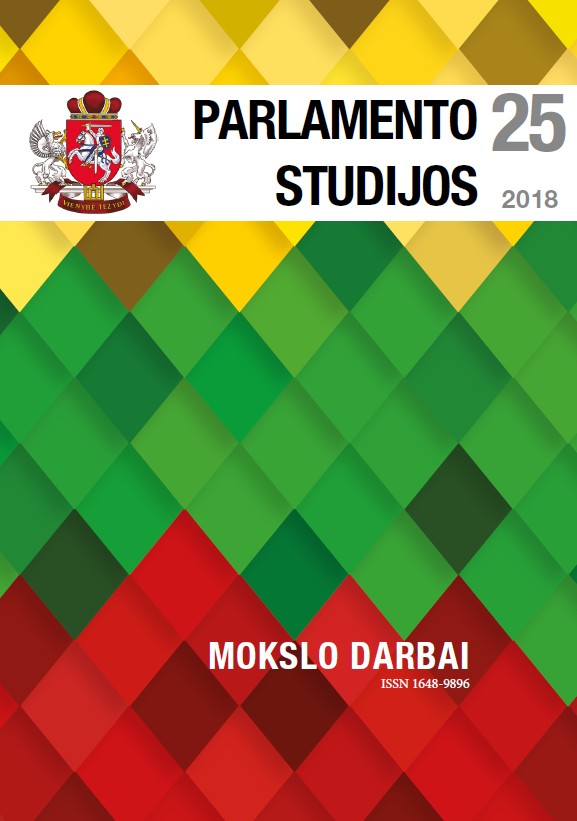Lietuvos Tarybos (ne)atstovavimas Šveicarijoje 1917–1918 metais
DOI:
https://doi.org/10.51740/ps.vi25.48Keywords:
authorised representatives of the Council of Lithuania, Lithuanian National Council (in Lausanne), Switzerland, Juozas Purickis, Vladas Daumantas-Dzimidavičius, Jurgis ŠaulysAbstract
The article addresses the appointment and competence of the authorised representatives of the Council of Lithuania having the power to represent the Council of Lithuania, Lithuania’s interests or affairs abroad (in the Entente Powers and neutral countries) and the specific nature of their activities as well as the competence of the Lithuanian National Council (in Lausanne) and the Council of Lithuania (later – State Council of Lithuania), their correlation and its change. The research covers the period from 22 October 1917 to 16 September 1918, i.e. from the appointment of the first authorised representatives of the Council of Lithuania abroad, Purickis and Daumantas-Dzimidavičius, to the end of the Third Lausanne Conference. The study reveals the origins of the representation of the Council of Lithuania in Switzerland, the circumstances of the formation of the Lithuanian National Council (in Lausanne) and its competence, the circumstances of the appointment of the authorised representatives of the Council of Lithuania to the Lithuanian National Council (in Lausanne) and their competence limits, the work accomplished by the Lithuanian National Council (in Lausanne) and the authorised representatives of the Council of Lithuania (in Vilnius) delegated to it (December 1917– September 1918), the problems relating to the coordination of activities with the Council of Lithuania as well as the causes of the conflict between the Lithuanian National Council (in Lausanne) and the delegation of the Council of Lithuania in the Third Lausanne Conference, the reasons of the lack of confidence in the activities of the Lithuanian National Council (in Lausanne), the circumstances of the appointment of a Lithuanian diplomatic representative to Switzerland and the sending of a mission to Bern.








 The metadata of the scholarly journals and publications of the Lithuanian National Martynas Mažvydas Library is distributed by
The metadata of the scholarly journals and publications of the Lithuanian National Martynas Mažvydas Library is distributed by 